Ramadan is one of the holiest festivals in the Muslim calendar.
This is a time during which many Muslims don’t eat or drink between sunrise and sunset, known as fasting. Fasting is used to improve self-control, encourage empathy with those less fortunate and become spiritually closer to God.
During this holy month, Muslims will also spend more time in prayer, doing charity work and being with their family and community.
In 2020 Ramadan will begin on the 23rd April when the New Moon rises, and will end on the 23rd May. But this year, the holiday will be very different for those observing.
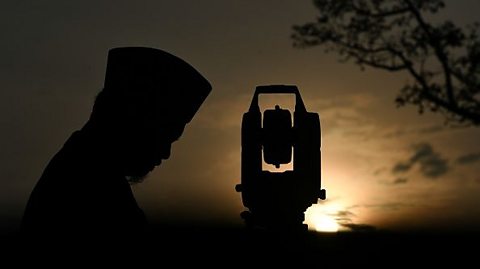 Image source, Robertus Pudyanto
Image source, Robertus PudyantoIn line with government advice about social distancing, new advice for observing Ramadan has been introduced. All UK mosques have been closed and Muslims won’t be gathering in person to break their fast together in the evenings (iftars) or to have Taraweeh prayers at the mosque.
Instead, the Muslim Council of Britain (MCB) is encouraging people to hold virtual iftars with friends, families and their community. They also recommend that iftar menus are planned in advance in order to avoid making multiple shopping trips.
As the world tries to stop the spread of coronavirus, many people have adapted their working patterns, doing their jobs from home when possible, as advised by the government. But what about the Muslim key workers who still need to go into work?
We spoke to one community pharmacist about his experience and his advice on observing Ramadan as a key worker.
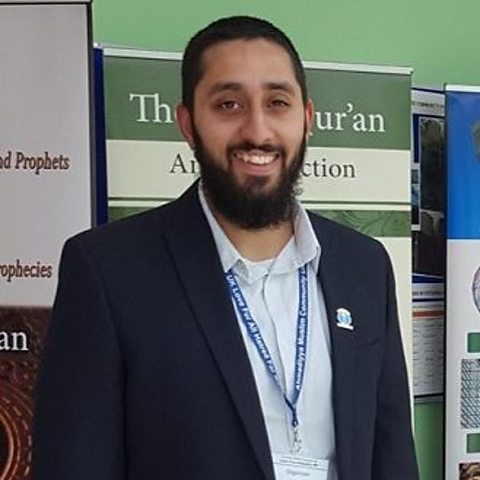
Balancing Ramadan and work
Akbar is a community pharmacist. As well as dispensing prescriptions, community pharmacists can give you flu vaccinations and advise you on which over the counter medication to take when you’ve got a minor ailment.
Part of Akbar’s role as a community pharmacist involves advising Muslims patients on how they can safely observe Ramadan each year.
For example, Akbar highlights that: “It is equally important to remind those that are not in a positive situation with their health to consider not fasting, and instead look to other ways that Muslims can engage and benefit from this holy month.”
Children, pregnant women, the elderly and those who are ill can be exempt from fasting due to health concerns. This includes anyone who falls ill because of coronavirus. However, some may choose to fast later in the year after seeking medical advice.

Staying healthy during Ramadan
This year, on top of the challenges introduced by the coronavirus, Ramadan has fallen during a time of long daylight hours and warmer temperatures, which can make fasting harder.
Akbar has advice on how to handle this, though: “My top tip to everyone has always been to drink plenty of water and have some high natural sources of sugar like dates at the times when we open and close our fast.”

Seven tips for medical key workers during Ramadan
Dr Salman Waqar is the General Secretary of the British Islamic Medical Association (BIMA). We asked him for his top tips for Muslims working on the front-line of the coronavirus pandemic.
- All Muslims who are able to do so should fast during Ramadan. Exceptions can be made for various situations and people who are not healthy.
- If a front-line healthcare worker needs to eat and drink because it would impair their duties, religious scholars have said they may break their fast.
- If someone finds themselves having to break their fast every day because of Coronavirus work pressures, they should consider not fasting the days they are working this Ramadan.
- Anyone who can’t fast during Ramadan can make up their fasting in the winter months, once this period has all calmed down, because the duty of that individual to preserve life is greater.
- Anyone wearing PPE (Personal Protective Equipment) and then having to move patients or spend lots of time on a ward can become tired and dehydrated. For such people wanting to fast, they should be discussing it with managers to see if they can do other jobs instead.
- Front-line workers need to also consider how long they’ll be wearing the PPE, whether the hospital is poorly ventilated and whether it has any AC.
- Choosing whether or not to fast is ultimately an individual decision.
- However, if people have got medical conditions and they want to fast, they need to speak to their GP to understand whether or not it could be safe for them to fast, as well as with their managers to see what options they have in the workplace.

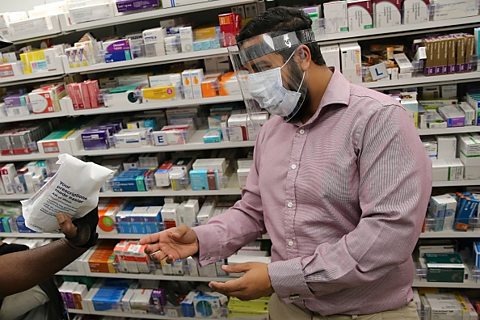 Image source, Isabel Infantes
Image source, Isabel InfantesThinking ahead to his own Ramadan experience, Akbar remains upbeat: “Personally I am much looking forward to it despite the current situation we are in. I guess one thing for sure is that I will enjoy those moments of opening my fast after a day of hard work even more and definitely feel more appreciative of all the things we normally take for granted.”
However, as a front-line worker during the coronavirus pandemic, Akbar also recognises the importance of taking care of his own mental health.
“The month of Ramadan is an opportunity for all Muslims to self-reflect, and really discover who they are and how they ought to conduct themselves.”
“Therefore, I would humbly suggest to all community pharmacists and other front-line workers, not to negate that opportunity. Societal and work success is intrinsically linked to our success in looking after ourselves physically and mentally.”
Ramadan: Your stories
What's it like to fast during your exams?
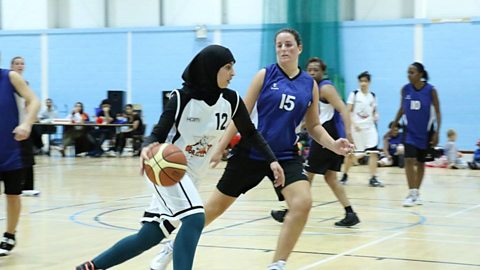
How is Eid al-Fitr celebrated around the world?
Eid is a time of celebration for millions of people, all with their own traditions.
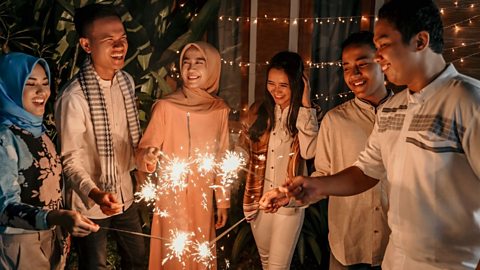
Coronavirus: Your questions answered
We've asked an expert to answer your questions about the pandemic.
